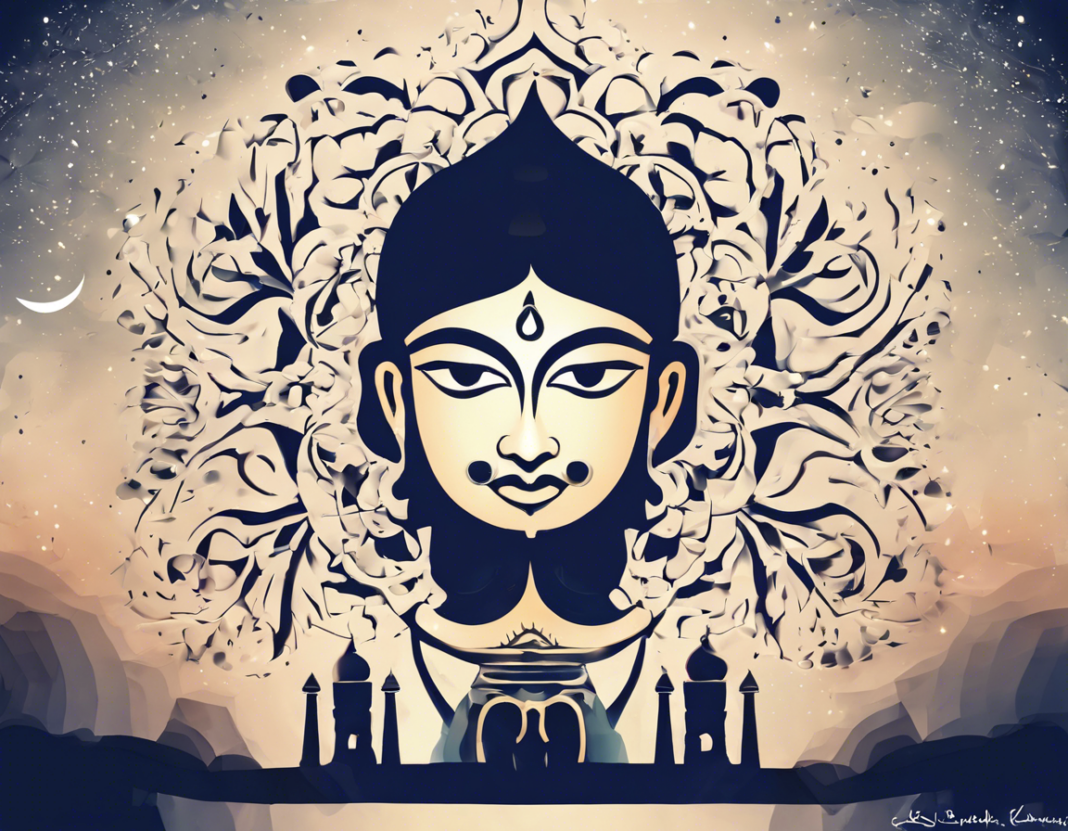The Purnima, or full moon day, holds great significance in various cultures and traditions around the world. It is considered to be a spiritually significant time when the moon is at its brightest and fullest. The beauty of the full moon has captivated humanity for centuries, inspiring poetry, art, and folklore. In many cultures, the full moon is believed to have a strong influence on human emotions and behavior. One common belief is that the full moon can affect our sleep patterns and mood.
In Hinduism, the full moon day is known as Purnima and is considered an auspicious day for religious activities and rituals. The Purnima that falls in the month of Ashadha (June-July) is especially significant and is known as Guru Purnima. This day is dedicated to honoring and expressing gratitude to one’s guru or spiritual teacher.
Significance of Purnima:
Purnima holds a special place in Hindu culture and is associated with various rituals and festivals. One of the most famous Purnima celebrations is the Kumbh Mela, a massive gathering of devotees who come together to bathe in sacred rivers and seek blessings. The significance of Purnima is also highlighted in the Hindu calendar, where special days are set aside for fasting and prayers.
Mythological Significance:
According to Hindu mythology, Purnima is believed to be the day when Lord Buddha delivered his first sermon, known as Dhammacakkappavattana Sutta. This event is commemorated as Buddha Purnima and is celebrated by Buddhists around the world.
Astrological Significance:
In astrology, the full moon is believed to have a powerful influence on human behavior. Some people believe that the full moon can affect our emotions, leading to heightened feelings of romance, creativity, and intuition. The full moon is also associated with increased energy levels and a sense of clarity.
Rituals and Traditions:
On the day of Purnima, many Hindus observe fasting and perform various rituals to seek the blessings of the moon god, Chandra. Devotees offer prayers, light lamps, and perform special pujas to honor the moon god and seek his blessings for prosperity and happiness.
Festivals Celebrated on Purnima:
Several festivals are celebrated on the day of Purnima in different parts of India. Some of the most popular ones include Raksha Bandhan, Sharad Purnima, and Kojagari Purnima. These festivals are marked by various rituals, ceremonies, and traditions that hold great cultural significance.
Importance of Moon Phases:
In addition to Purnima, the other phases of the moon, such as Amavasya (new moon) and Ekadashi (eleventh day after the full moon or new moon), are also considered important in Hindu culture. Each phase has its own significance and is believed to influence various aspects of human life.
FAQs (Frequently Asked Questions):
1. When is the best time to perform rituals on Purnima?
The ideal time to perform rituals on Purnima is during the evening when the moon is visible in the sky. Devotees can offer prayers, light lamps, and perform pujas during this time to seek the blessings of the moon god.
2. What are some common foods eaten during Purnima fasting?
During Purnima fasting, devotees typically consume satvik foods such as fruits, milk, nuts, and khichdi. These light and easy-to-digest foods are considered suitable for fasting rituals.
3. Is it mandatory to fast on Purnima?
Fasting on Purnima is not obligatory, but many devotees choose to observe fasts as a way to purify their minds and bodies. Fasting is believed to help devotees focus their thoughts on spiritual matters and seek blessings from the divine.
4. Can women observe fasting rituals on Purnima?
Yes, women can also observe fasting rituals on Purnima. In Hindu culture, both men and women are encouraged to participate in religious activities and observe fasts to seek spiritual blessings.
5. What is the significance of offering milk to the moon on Purnima?
Offering milk to the moon on Purnima is a traditional ritual that is believed to bring prosperity and happiness. The moon is considered a symbol of purity and nourishment, and offering milk is a way to honor the moon god and seek his blessings.
In conclusion, Purnima is a sacred day that holds great spiritual significance for millions of people around the world. Whether observing fasts, performing rituals, or celebrating festivals, Purnima serves as a reminder of the beauty and power of the full moon. It is a time to reflect, seek blessings, and connect with the divine in all its glory.
